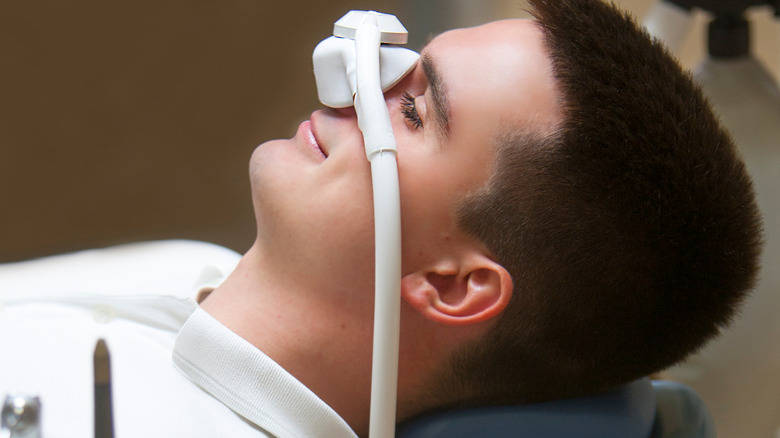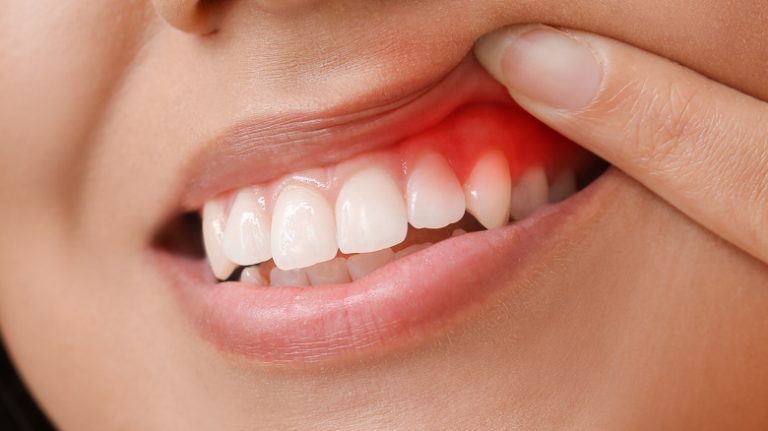Have you ever been nervous before a dentist appointment? If so, you may be familiar with nitrous oxide, more commonly known as laughing gas. Dentists often relieve patients’ anxiety by mixing oxygen and nitrous oxide and administering it through a small mask placed over the nose. The effects typically take place within minutes, according to Colgate.
Nitrous oxide gets its nickname “laughing gas” because it creates a feeling of euphoria, which may cause some people to laugh. However, this is not the case for everyone. Often, laughing gas just relieves anxiety and makes people feel calm, happy, light-headed, warm, and tingly (per Watertower Dental Care). According to Colgate, people may also feel a heaviness in their arms or legs.
Nitrous oxide was originally intended to treat lung diseases such as tuberculosis, but this did not work out. Nowadays, laughing gas is most often used to calm people down during dental procedures (per Lowry Dental). Its effectiveness and safety have led to its inclusion on the World Health Organization’s Model List of Essential Medicines, but how does it work?
How does laughing gas calm you down?

According to Colgate, laughing gas calms people down by slowing down the nervous system. It also creates a euphoric effect by causing the brain’s reward system to release dopamine while activating the body’s natural pain killers. While the effect is not strong enough to eliminate pain in other medical situations, such as surgery, it is perfect for alleviating the discomfort of dental procedures, according to Lowry Dental. Watertower Dental Care notes that laughing gas suppresses the senses so people don’t have to feel or hear what is going on in their mouths.
Side effects are rare but include shivering, headaches, fatigue, sweating, nausea, and vomiting. To prevent headaches, the California Dental Association advises dentists to give patients oxygen for at least five minutes after turning off the laughing gas. This will flush out any remaining nitrous oxide from the lungs.
While laughing gas is safe when used in medical contexts, prolonged exposure (as seen in recreational settings) can be toxic. It can cause vitamin B12 deficiency that may lead to nerve damage. For this reason, laughing gas is best reserved for medical situations where it is administered by a professional (per Regulatory Toxicology and Pharmacology).



